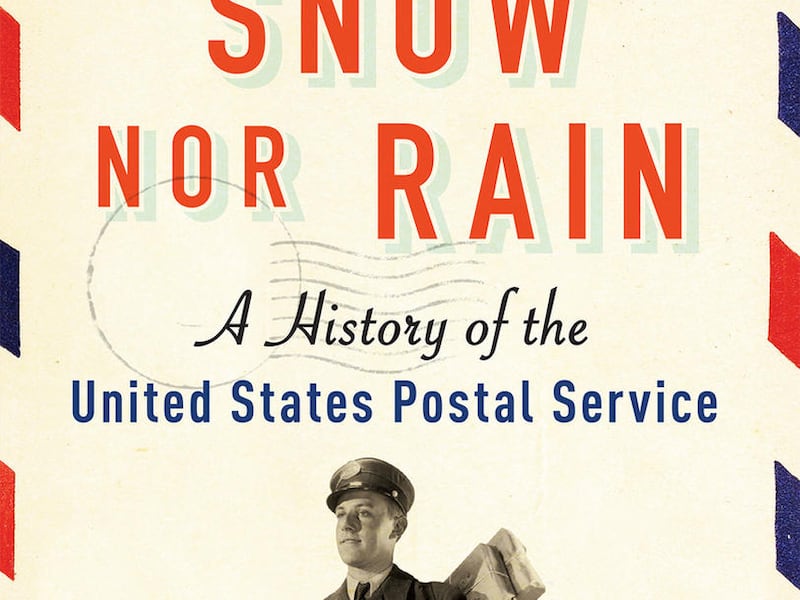"NEITHER SNOW NOR RAIN: A History of the United States Postal Service," by Devin Leonard, Grove Press, $26, 288 pages (nf)
On the office wall of a mailing list broker in Manhattan several decades ago hung a framed bumper sticker. It showed a mailbox and the words, "When you get mail, somebody loves you."
That was hyperbole, of course, but as Bloomberg Businessweek reporter Devin Leonard explains in his recently released book, "Neither Snow Nor Rain," America's postal network, which dates back to colonial times, has long been an integral part of society and is vital to many even now.
Mail was the original internet; everybody could send and receive messages, although, as Leonard points out, early postal charges restricted the service to the relatively affluent. Even so, the fledgling United States of America's postal force carried newspapers and other periodicals far and wide, serving a vital communications function.
Postal rate reform in the mid-1800s made mailing a letter more "universal," with the two- or three-cent fee accessible to almost everyone, Leonard writes, and the United States became a nation of letter writers. The Post Office Department — for nearly 200 years a Cabinet agency — was a standard by which a president's party was measured, according to Leonard’s book, and that's why political operatives such as John Wannamaker, a merchant who raised funds for President Benjamin Harrison's election, were given the postmaster general's job. That tradition carried through until 1971, when legislation making the postal agency quasi-independent took effect.
Technology and changing consumer habits have pressed in on today’s U.S. Postal Service, and Leonard doesn't shrink from discussing the issues facing one of the nation's oldest services. He tosses in a fair amount of postal lore, and one doesn't have to be a history buff or a stamp collector to appreciate his tales.
There are a few instances of strong language in the book, from a discussion of postal anti-obscenity campaigns in the 19th century to the 1970 postal strike that crippled the economy for several weeks. But such episodes are spare, and the overall story is a compelling one worth reading.
Email: mkellner@gmail.com
Twitter: Mark_Kellner

